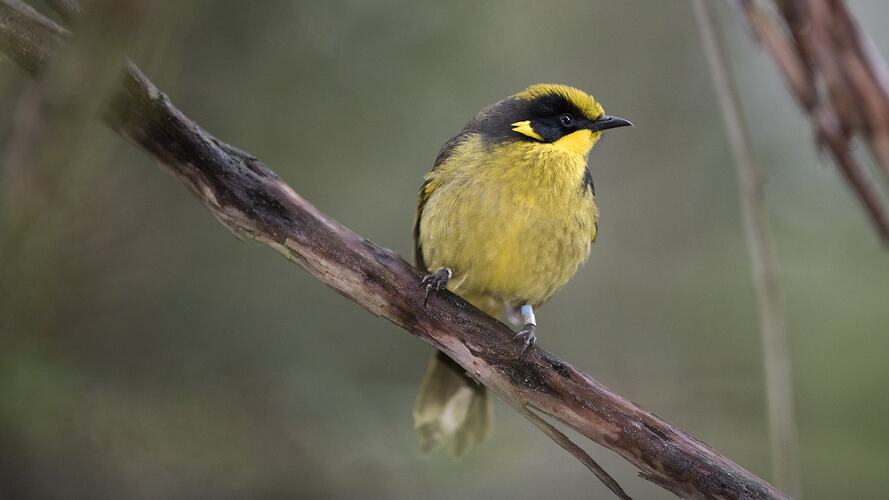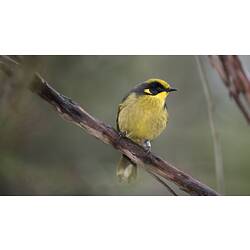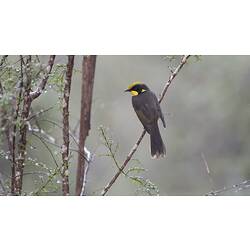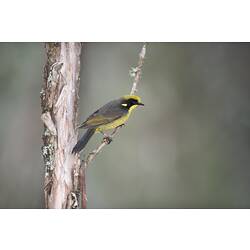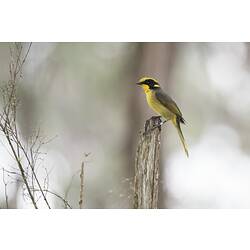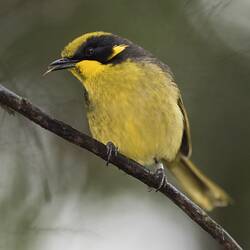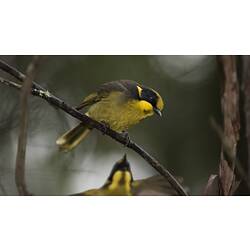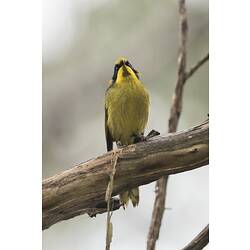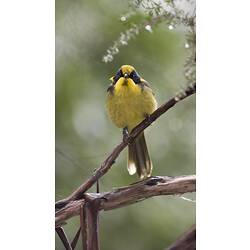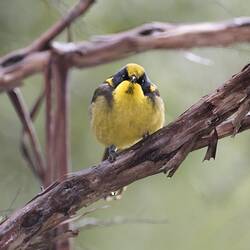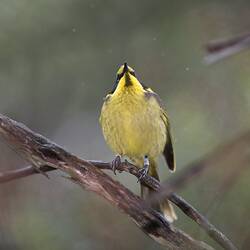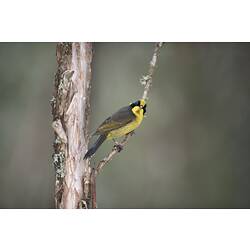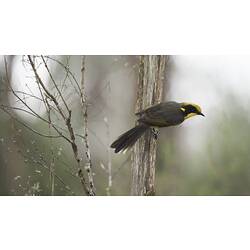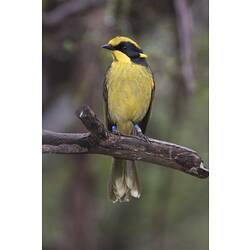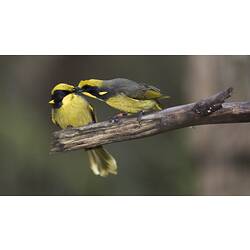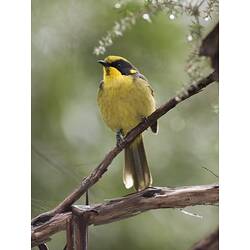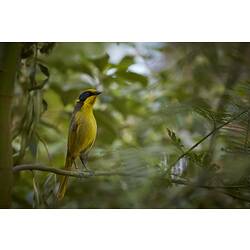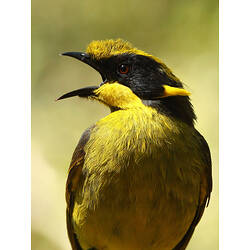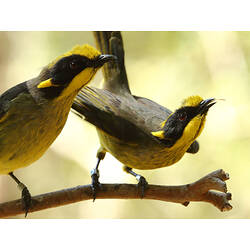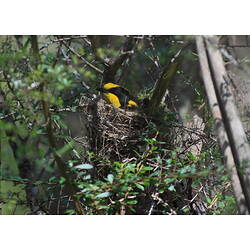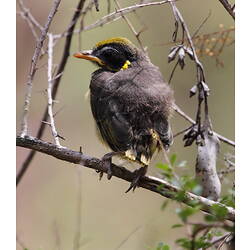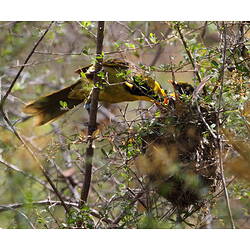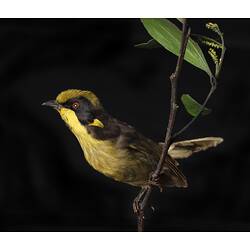General Description
Helmeted Honeyeaters have distinctively-contrasting yellow and black/brown plumage. They have yellow faces and throats with large black circles around their eyes, giving them a masked appearance. Above their "mask", they have pointed yellow ear-tufts and a "helmet" of golden feathers. This helmet is unique among the honeyeaters and gives this subspecies its name. The wings, back and tail are dark olive-brown. Adults are 17-23 cm long. Males are slightly larger than females, but there is no difference in their colouration.
Biology
The Helmeted Honeyeater is Victoria's bird emblem and is endemic to Victoria: it lives in Victoria and nowhere else. A subspecies of the Yellow-tufted Honeyeater, it is critically-endangered and restricted to the Yellingbo Nature Conservation Reserve. Fewer than 100 birds remain in the wild. They are aggressive birds, fiercely defending their territories. They breed from July to March, usually producing 3 clutches per season and 2 eggs per clutch. The females build the nests and incubate the eggs, but both parents feed the chicks. The cup-shaped nests are made of grass and bark bound with spider webs and lined with soft material. They gather most of their food from eucalypt trees, feeding on invertebrates, lerps, nectar and manna (sap). They also eat berries and honeydew. Their main threats include habitat degradation, predation by introduced species, and competition with other species, particularly Bell Minors.
Distribution
South-eastern Victoria
Habitat
Riparian forests, dominated by Mountain Swamp, Swamp and Manna Gums, with an understory of Scented Paperbark, Woolly Tea-tree, sedges and tussock grasses.
More Information
-
Animal Type
-
Animal SubType
-
Brief Id
Black-masked yellow face; yellow throat, helmet and ear tufts; and dark brown back, wings and tail.
-
Maximum Size
23 cm
-
Diet
Omnivore
-
Endemicity
-
Conservation Statuses
CITES: Trade restrictions (Appendix II), EPBC Act 1999: Critically Endangered, FFG Threatened List: Critically Endangered, IUCN Red List: Not listed
-
Taxon Name
-
Common Name
Helmeted Honeyeater
-
Other Names
Yellow-tufted Honeyeater
-
Kingdom
-
Phylum
-
Subphylum
-
Class
-
Order
-
Family
-
Genus
-
Species Name
melanops
-
Subspecies
cassidix
